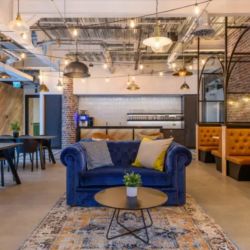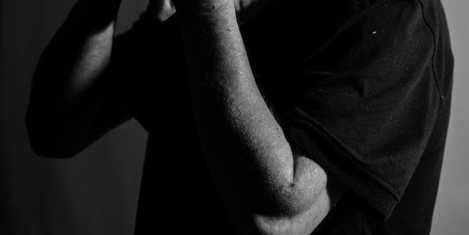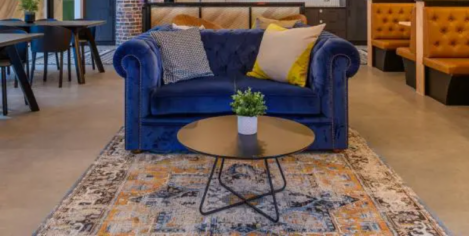March 28, 2024
Search Results for: covid-19
March 13, 2024
Forty percent of companies calling staff back to the office five days a week
by Neil Franklin • Flexible working, News
 Two in five companies are returning to a five-days-in-the-office work week, according to new data from Virgin Media O2. The Telecoms giant’s Movers Index suggest that around 40 percent of firms now require five-day-a-week office work. Meanwhile, 92 percent of companies had some kind of mandatory in-office policy. Wednesday remains the top day for office work, with about three quarters of office workers coming in for the midweek. (more…)
Two in five companies are returning to a five-days-in-the-office work week, according to new data from Virgin Media O2. The Telecoms giant’s Movers Index suggest that around 40 percent of firms now require five-day-a-week office work. Meanwhile, 92 percent of companies had some kind of mandatory in-office policy. Wednesday remains the top day for office work, with about three quarters of office workers coming in for the midweek. (more…)
March 12, 2024
UK greenhouse gas emissions fall to lowest level since 1879
by Jayne Smith • Environment, News
 The UK’s greenhouse gas emissions fell by 5.7 percent in 2023 to their lowest level since 1879, according to a new analysis from Carbon Brief. According to the report from the researchers, the last time UK emissions were this low, Queen Victoria was on the throne, Benjamin Disraeli was prime minister, Mosley Street in Newcastle became the first road in the world with electric lighting and 59 people died in the Tay Bridge disaster in Dundee. (more…)
The UK’s greenhouse gas emissions fell by 5.7 percent in 2023 to their lowest level since 1879, according to a new analysis from Carbon Brief. According to the report from the researchers, the last time UK emissions were this low, Queen Victoria was on the throne, Benjamin Disraeli was prime minister, Mosley Street in Newcastle became the first road in the world with electric lighting and 59 people died in the Tay Bridge disaster in Dundee. (more…)
March 9, 2024
You couldn’t make it up. Boots orders staff back to the office five days a week
by Marvin Gort • Flexible working, News
 Boots has ordered staff to return to the office full-time, five days a week, starting from the first of September this year. Employees at the company’s headquarters in London, Nottingham, and Weybridge were reportedly informed via email this week about the stricter policy on remote work. This is a shift from Boots’ current policy, implemented after the COVID-19 outbreak, which encouraged a three-day-a-week office presence. (more…)
Boots has ordered staff to return to the office full-time, five days a week, starting from the first of September this year. Employees at the company’s headquarters in London, Nottingham, and Weybridge were reportedly informed via email this week about the stricter policy on remote work. This is a shift from Boots’ current policy, implemented after the COVID-19 outbreak, which encouraged a three-day-a-week office presence. (more…)
February 21, 2024
Leaders who vanish in times of crisis increase stress and likelihood of burnout
by Neil Franklin • Business, News
 Leaders who are not present during a time of organisational crisis increase workers’ stress levels and the likelihood of them burning out, according to new research from a number of UK business schools, including Durham University Business School. The researchers show that when leaders are absent it creates a more toxic workplace, turning workers against management, as well as increasing workers’ stress, levels of absence and even turnover. (more…)
Leaders who are not present during a time of organisational crisis increase workers’ stress levels and the likelihood of them burning out, according to new research from a number of UK business schools, including Durham University Business School. The researchers show that when leaders are absent it creates a more toxic workplace, turning workers against management, as well as increasing workers’ stress, levels of absence and even turnover. (more…)
December 7, 2023
Has digital transformation led to an upsurge in workplace disinformation?
by Garry Paxinos • Comment, Technology
 You don’t have to look far to find misinformation. Just a few weeks ago, amid the aftermath of the coup in Niger, online platforms were being inundated with false information, intensifying tensions surrounding the nation’s future. This included erroneous videos on TikTok and Twitter suggesting the presence of Wagner Group (Russian state-funded) fighters, false claims about Algeria’s military involvement, and inaccurate assertions about banning uranium export to France. (more…)
You don’t have to look far to find misinformation. Just a few weeks ago, amid the aftermath of the coup in Niger, online platforms were being inundated with false information, intensifying tensions surrounding the nation’s future. This included erroneous videos on TikTok and Twitter suggesting the presence of Wagner Group (Russian state-funded) fighters, false claims about Algeria’s military involvement, and inaccurate assertions about banning uranium export to France. (more…)
December 3, 2023
Tailored workplace management for modern organisations
by Paul Phillips • Comment, Technology, Workplace design
 Workplace management used to be a secondary concern for organisations in the past, but it has now become a top priority. The COVID-19 pandemic has accelerated the process of digital transformation, leading to the implementation of new processes and technologies that focus on facilitating remote and at-home work. As a result of these changes, organisations have recognized the importance of finding a balance in their work environments. (more…)
Workplace management used to be a secondary concern for organisations in the past, but it has now become a top priority. The COVID-19 pandemic has accelerated the process of digital transformation, leading to the implementation of new processes and technologies that focus on facilitating remote and at-home work. As a result of these changes, organisations have recognized the importance of finding a balance in their work environments. (more…)
November 27, 2023
Appetite for hybrid working shows no sign of letting up at large firms
by Neil Franklin • Flexible working, News
 The ongoing advancements in technology have made remote collaboration more feasible and seamless than ever before. Collaboration tools have become essential in ensuring the coexistence of the digital and physical workplace, both internally with employees and externally with clients. And in 2023, companies have been posting hybrid working related roles in record numbers, according to a new report from GlobalData. (more…)
The ongoing advancements in technology have made remote collaboration more feasible and seamless than ever before. Collaboration tools have become essential in ensuring the coexistence of the digital and physical workplace, both internally with employees and externally with clients. And in 2023, companies have been posting hybrid working related roles in record numbers, according to a new report from GlobalData. (more…)
November 23, 2023
Half of work related illness is down to stress, depression or anxiety
by Jayne Smith • News, Wellbeing
 Nearly two million workers in Great Britain reported suffering from work-related ill health in 2022/23, according the latest annual statistical report from the UK’s Health and Safety Executive. The statistics reveal that 1.8 million workers reported they were suffering from work-related ill health in 2022/23, with approximately half of the cases down to stress, depression or anxiety. In the recent years prior to the COVID-19 pandemic, the rate of self-reported work-related ill health had been broadly flat, but the current rate is higher than 2018/19. (more…)
Nearly two million workers in Great Britain reported suffering from work-related ill health in 2022/23, according the latest annual statistical report from the UK’s Health and Safety Executive. The statistics reveal that 1.8 million workers reported they were suffering from work-related ill health in 2022/23, with approximately half of the cases down to stress, depression or anxiety. In the recent years prior to the COVID-19 pandemic, the rate of self-reported work-related ill health had been broadly flat, but the current rate is higher than 2018/19. (more…)
November 14, 2023
No one shouted stop, although we all should have seen it coming
by Chris Kane • Comment, Everything Omni, Facilities management, Property, Workplace design
 And No One Shouted Stop! seems to me to be an apt phrase to capture these post- pandemic times as we grapple with work and workplace dilemmas. It comes from the little-known but widely acclaimed book of the same name by John Healy. It is set over 50 years ago and it chronicles the decline of an Irish town. The book’s underlying narrative is a train crash happening in slow motion, people see it coming but nobody feels able to stop it. I sincerely hope that this will not prove to be the case for the world of commercial real estate as it grapples with hordes of tenants asking not just ‘where is my office?’ But ‘why do I need an office?’ (more…)
And No One Shouted Stop! seems to me to be an apt phrase to capture these post- pandemic times as we grapple with work and workplace dilemmas. It comes from the little-known but widely acclaimed book of the same name by John Healy. It is set over 50 years ago and it chronicles the decline of an Irish town. The book’s underlying narrative is a train crash happening in slow motion, people see it coming but nobody feels able to stop it. I sincerely hope that this will not prove to be the case for the world of commercial real estate as it grapples with hordes of tenants asking not just ‘where is my office?’ But ‘why do I need an office?’ (more…)
November 12, 2023
Want people to spend more time in the office? Give them a little piece of home
by Yaron Rosenblum • Comment, Workplace design
 For many people, a large portion of the day is spent at the workplace. In fact, the average person will spend 90,000 hours at work over a lifetime. The Covid-19 pandemic saw the typical ‘workplace’ setting change for many people, after businesses around the globe were forced to adjust to a ‘work-from-home’ model. Now, three years later, we are starting to see more employees return to the office, with large corporations including JPMorgan, Chase, Apple and Google all announcing plans to bring their workers back to base. (more…)
For many people, a large portion of the day is spent at the workplace. In fact, the average person will spend 90,000 hours at work over a lifetime. The Covid-19 pandemic saw the typical ‘workplace’ setting change for many people, after businesses around the globe were forced to adjust to a ‘work-from-home’ model. Now, three years later, we are starting to see more employees return to the office, with large corporations including JPMorgan, Chase, Apple and Google all announcing plans to bring their workers back to base. (more…)

























January 25, 2024
The final word on … responsibility
by Mark Eltringham • Business, Comment
(more…)